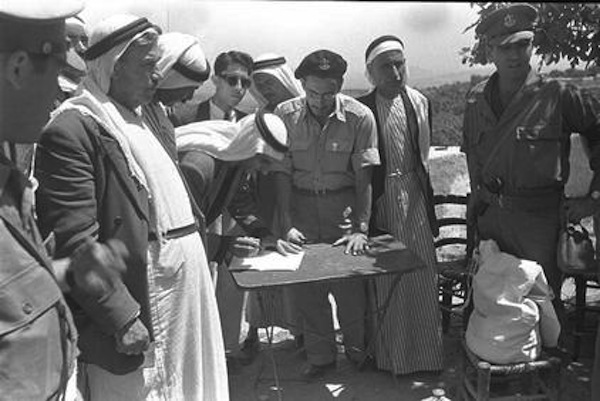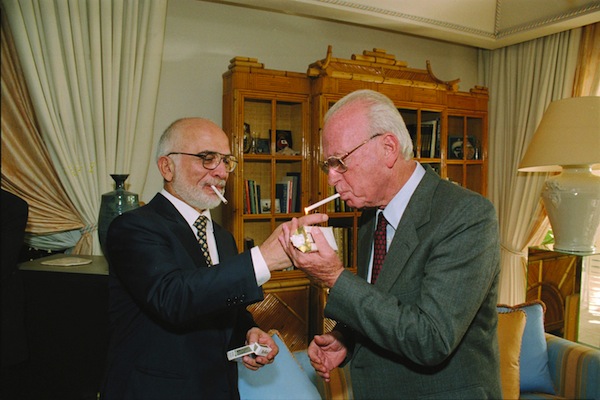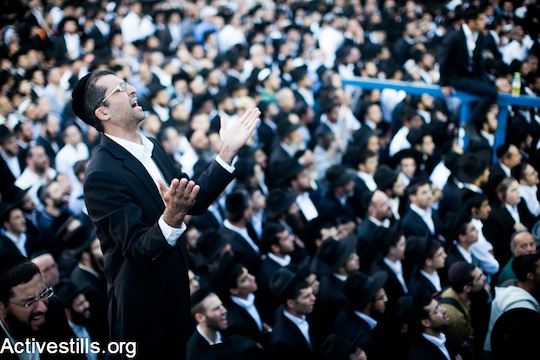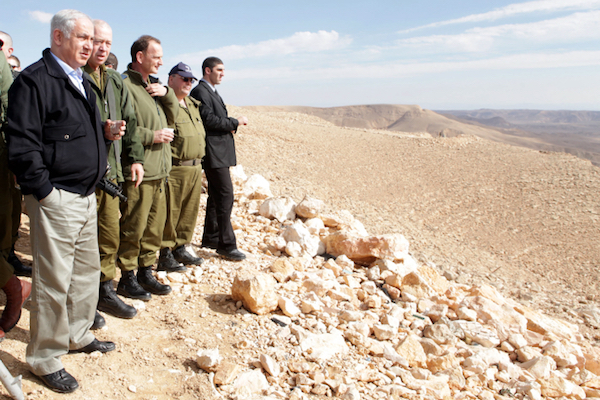It’s time for Israel to recognize that it can coexist with its neighbors without fear or feelings of superiority. Academia can lead the way.
By Assaf David

The perception of Israel as a foreign entity in the Middle East, hence a fortress under threat, is shared by all major purveyors of knowledge and discourse in the political and public Israeli-Jewish sphere. Alas, the academia, as well as the so-called “peace camp,” do not offer an alternative perception, which would view Israel for what it really is: a country becoming well-integrated into the Middle East, and one that can and should live in the region without fear or feelings of superiority.
The following talk was presented, in Arabic, at a conference titled “Winds of Change in the Middle East” at Ben Gurion University on January 26, 2015.
***
Good afternoon,
Instead of offering you a well-organized thesis on the Israeli public discourse with respect to the Arab Spring, I would like to address a few aspects of the topic. These aspects have to do with the way in which Jewish citizens of Israel tend to view the Middle East, and the ways in which the various purveyors of knowledge and discourse vis-a-vis the region — be they members of the establishment, of academia, or of what is known as the “peace camp” in the political sphere and outside of it — replicate this point of view.
Let us start at the beginning: the claim that Israel is a foreign entity in the Middle East fails the test of reality. Israel, in fact, is closely tied — for better or worse — to the region in which it exists, much more so than to the liberal-democratic West, and much more so than some Jews or Arabs are willing to admit. Israel and its neighbors are new nation-states, products of the withdrawal of colonial powers from the region in the middle of the last century. All countries of the Middle East face processes that are characteristic of post-colonial states, the foremost being the threat toward their national identity from super-identities (such as religion and pan-nationalism) or sub-identities (community, origin, or ethnicity), and the prioritization of military-security considerations over civilian ones in decision-making.

Second, Israel is a state in which a certain nationality and religion control the government and the resources, similar to other countries in the region (with the exception of Lebanon). Third, in all countries of the region, including Israel, religion and the state compete for primacy as well as for shaping the public sphere. Fourth, with its many communities, Israeli society is a collectivist society, resembling the surrounding societies more than it resembles those of the liberal-democratic West. And finally, the Mizrahi background, with its many aspects, is a central component in the Israeli identity, including Israeli Jewish identity.
I could go on and on, but I think that the principle is clear. Israel, as a state, community, and population, fits well into the Arab Middle Eastern world. How prominent is this fact among the Israeli purveyors of knowledge and discourse regarding the Middle East? Not so much. They find it convenient to think of Israel as a Western, liberal state, different from the regional landscape. But this is only partially true and only in certain aspects. If we take into account long-term trends, Israel is — in significant aspects — a proud Middle Eastern state.
If Israel is a Western, liberal, different state, then the Middle East necessarily constitutes a threat. And there are well-known ways to address a threat. If it is a real threat, it is possible to strike at it or live with it in tense coexistence. If it is a potential threat, it can be disregarded as long as it is small and insignificant. When it awakens and becomes powerful, it should be monitored in order to know when it reaches the level of a real threat. These are exactly the means adopted by the State of Israel and its purveyors of knowledge and discourse toward Arabs, Islam, and the Middle East. Since all of these are perceived as threats, a path-dependence is created which ostensibly compels us to address the “threat” using known means.
Thus the peace agreements between the State of Israel and Egypt, Jordan, and the Palestinians are intended primarily to contain that threat. Once contained or neutralized, it is relegated to the level of potential threat. It can be disregarded (like Jordan), watched with concern in case it is a great threat (like Egypt), and be under constant debate whether we should attack it, live with it in tense coexistence, dismiss it or monitor it. If the threat is domestic like the Palestinians, even if contained or neutralized, it remains an eternal threat and cannot be viewed as an opportunity for a genuine connection with the region in which we exist. Or in other words: to replace the security attitude with a civil one.

Hence the attitude of the Israeli purveyors of knowledge and discourse toward the vicissitudes of the Arab Spring. We should not complain about the establishment. The state institutions charged with collecting intelligence, research, and evaluation of the uprising are by nature conservative, cautious, and more risk-averse than opportunity-driven. No wonder that when the Arab Spring began to falter, state authorities adopted a pessimistic view of the events and preferred the return of oppressive regimes to the democratically elected Islamic option. This attitude is justified, at least in part, by instability and rising violence, and certainly the disintegration of some states, which concern not only Israel’s citizens, but even more so, the citizens of these states.
But what is the role of purveyors of knowledge and discourse in the public and political sphere, in the academia and the media? I cannot avoid cynicism; in a Western, liberal, civilized state, they are expected, and should be expected to present an alternative world view — a pluralistic and multi-dimensional perspective of reality. But the central purveyors in Israel accept the two components of the prevailing paradigm: first, Israel is a foreign entity in the region, and second, as a consequence, Israel is permanently faced with an existential threat. This paradigm blinds many from seeing that there is no big difference, for example, between integrating the Muslim Brotherhood into the political regime of the neighboring countries, versus the struggle between religious-conservative parties and the secular-liberal parties in Israel. Political Islam is perceived by the Israeli purveyors of discourse and knowledge as a threat, whereas political Judaism is perceived as reality — not desirable, perhaps, but nevertheless a product of a democratic process that has to be accepted.

Let us start with the Israeli academia. Is research on the Middle East conducted in Israel capable of offering alternative, critical, and complex thinking about what is going on in the region? Moreover, does the Israeli academia itself reflect the recognition that Israel belongs in the Middle East? The answer is emphatically “no.” Were the answer “yes,” there would have been Regional Studies programs offering courses on Israel and the Middle East alongside one another, and the various courses would have featured the relationships between society and state, religion and state, army and politics, sociology, political economy and so on — of all Middle Eastern states, including Israel. However, the studies of modern Israel are concentrated in the faculties of Social Science (sociology, anthropology, political science, economics), and the study of Israeli and Jewish history and the history of Islam and the Middle East are segregated in the humanities and liberal arts faculties
Study of the modern day Middle East in general — and inter-disciplinary study in particular — is missing from the Israeli academia, for two reasons: first, the prevailing perception that “Middle Eastern studies” necessarily, and exclusively, means the history of Arabs and Islam; and second, the lack of interest on the part of Middle Eastern studies in true inter-disciplinary research. In other words, it is doubtful whether the Israeli academia, in its present form, is capable of creating a large body of research and scholars who could analyze the events in the Middle East from different angles and within diverse scientific disciplines, which is the only way to enrich the local academic discourse, currently focused on history or, at best, on modern political or radical Islam. Without the contribution of social sciences — sociology, political economy, political psychology, political science, anthropology and culture studies — it is impossible to put together a body of knowledge about any society. Israeli research offers none of the above, and it is doubtful that it can offer any, given the lack of academic programs and research training. This in spite of the fact that inter-disciplinary research of the Middle East is flourishing in the Western, liberal academia, to which we ardently aspire to belong.
Let us take one of the main purveyors of Middle East knowledge in Israel, the Middle East Media Research Institute (MEMRI), as a prime example. MEMRI’s motto is “to get to know the neighbors in order to make peace.” However, anyone reading their publications gets the impression that “knowing the neighbors” merely aims to reinforce the prevailing paradigm — namely, that the Arabs and Islam are fundamentally different from Israel — rather than challenging it. Under these circumstances it is futile, of course, to speak of peace. Other extra-academic research institutes and information (not to mention intelligence) gathering centers are sometimes guilty of lacking the ability to conduct research in Arabic, therefore unable to cope with the complexity of the reality of the Arab and Islamic region; or of inundating us with information and analysis reflecting the security-based “perception of threat.” And I ask: why do we need more knowledge if it only reinforces what we already know?

For its part, the Israeli media derives its information mostly from these purveyors of discourse. Sometimes it provides a stage for academics who, as discussed earlier, lack the knowledge, time, attention, and necessary scientific tools to analyze modern events, although they may possess rich historical knowledge. With the exception of a few pundits, the central commentators in the Israeli public discourse, both from the academic and the communication perspective, support and inflate the “threat thesis.” The fear-mongering TV programs of Zvi Yehezkeli, in the spirit of “Allah, Islam, and ISIS” are the most prominent examples of this phenomenon.
One of the greatest features of the public discourse on the Middle East in Israel is the preservation of the imaginary separation between Israel and other Middle Eastern countries, and the belief that what happens “here” is fundamentally different from what goes on “there.” It therefore follows that there is no reason or need to compare the two sides: these are not just distinct domains of reporting and analysis, but rather separate worlds that are essentially different from each other. The result is that the public discourse in general, and the public discourse vis-a-vis the Middle East in particular, reflects the belief that criticism of Arabs and of Islam is professionally legitimate and “indicative of reality,” whereas criticism of similar problems and phenomena on “our” side belongs, at best, to domestic politics punditry, and at worst it is “politically biased,” “non-professional” or, to use the explicit term, “leftist.” This tendentious structuring is the work of those dominant research and information institutes, which examine only the Arab contribution to the perpetuation of the conflict. Although some of them can pass academic muster, they nevertheless manufacture a distorted and partial picture of reality.
Will salvation come from civil society organizations, especially from what is known as the “peace camp?” Regrettably, I do not think so. Most of these organizations give up when it comes to a genuine connection to the region. At best, they can communicate in neo-liberal English with the Arab liberal elite. They are obviously incapable of producing alternative knowledge about the Arab region, because most of their members are Ashkenazi Jews, usually male, who never took the time to learn Arabic and, furthermore, do not understand why it is important to do so. Even worse, they gladly leave the graduates of Arabic and Islam studies to join the government and military-security apparatus, which is very eager to incorporate them into its ranks and provides them plenty of opportunity to perpetuate the threat concept. For these organizations, graduates of elite American universities with glittering titles suffice. These graduates may have a natural talent fund-raising, but when it comes to Islam, Middle East, and Arabic, they are completely foreigners to the Middle East, and, in fact, to large segments of Israeli Arab and Jewish society as well.
The “Forum for Regional Thinking,” which I co-founded and head, was established recently based on the “CanThink” website. This site was established over three years ago by a number of Middle East scholars from the Israeli academia, whose convictions differs from what has been described above. The Forum seeks to make its modest contribution to undermining the paradigm of separation between Israel and the Middle East, and to bringing about a significant change in the Israeli public discourse about the Middle East. The Forum members come from different backgrounds, but for each of us the Middle East is part of our lives. We are sick and tired of the tangible and the intangible fences, of the cultivation of ignorance and the resulting anxiety. The damage caused by the fortified walls that Israel has erected to separate itself from its environment is growing, and if we continue to raise them further, it will lose contact with reality.
We seek to change the constricting mode of thinking about Israel’s place and its very existence within the Middle East, which is based on ignorance, a lack of understanding, and fears. We feel that Israel should recognize its strength as a regional power, which can and should coexist with its neighbors without fear or feelings of superiority.
To that end, the members of the Forum are expected to work on formulating an alternative to the conventional and hackneyed representations of the Middle East in the Israeli consciousness. We will do all we can to infuse the Israeli discourse with civilian thinking, acquaintance, understanding and, above all, with empathy. The path we intend to chart leads directly to meeting with our neighborhood and neighbors. Only when we recognize and get to know “them” — the Arabs, their culture, their society, their economy and their politics, as well as the Arab elements that exist within Jewish and Israeli identities — only when we learn to recognize all of these as part of our environment with which and within which we live, only then we can think of a durable future in the Middle East.
I invite every one of those present here, especially the Arabs among us, to contribute analyses, research and policy papers to enrich the Israeli public discourse about Islam, Arabs and Israel in the Middle East.
Dr. Assaf David is a founding member and director of the Forum for Regional Thinking (FORTH). He teaches at the Department of Political Science at the Hebrew University of Jerusalem. Read this article in Hebrew here.

